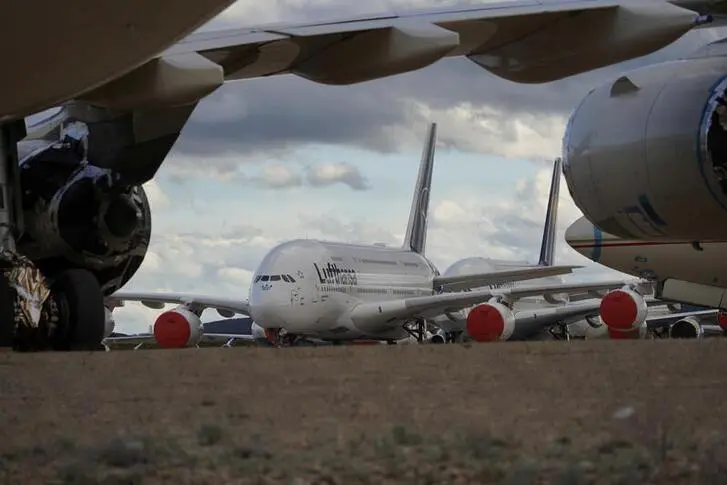PHOTO
MADRID- The Spanish government approved on Tuesday a 475 million euro ($556 million) aid package for Air Europa, making the airline the first major Spanish company to tap into funds established to help companies in strategic sectors weather the pandemic.
The package will comprise a 240 million euro equity-backed loan and a 235 million euro regular loan, government spokeswoman Maria Jesus Montero told a news conference.
Air Europa will have a maximum of six years to repay the loans, Montero told reporters after a weekly cabinet meeting.
In return for the help, the government will want to have a say on Air Europa's potential sale to IAG, the spokeswoman said, without going into details over what role Madrid would want to play.
British Airways owner IAG, which agreed to buy Air Europa for 1 billion euros last November, said last week it was still interested in pursuing the deal. It declined to comment on Tuesday.
"In the case of Air Europa, the impact of the pandemic ... is evident, due to the drastic reduction in air traffic caused by reduced mobility and fewer tourist arrivals," Montero said, adding the number of flights operated by the airline plunged 95% in the second quarter.
Montero said the government "reserved the right to give an opinion and decide criteria" on the possible deal with IAG, without adding details.
She also said the government wanted to participate in the nomination of the airline's chief executive and in any layoff plans.
Air Europa, whom sources said had asked for government support, did not immediately respond to a request for comment.
International travel restrictions have brought the global transport sector to a grinding halt, pushing several airlines to rely on state aid.
Air France-KLM received 7 billion euros from the French government in April, while German flag carrier Lufthansa secured a 9 billion euro bailout in June.
($1 = 0.8546 euros)
(Reporting by Inti Landauro, Nathan Allen, Belen Carreno, Emma Pinedo Additional reporting by Sarah Young in London Editing by Ingrid Melander and Mark Potter) ((Nathan.Allen@thomsonreuters.com;))





















